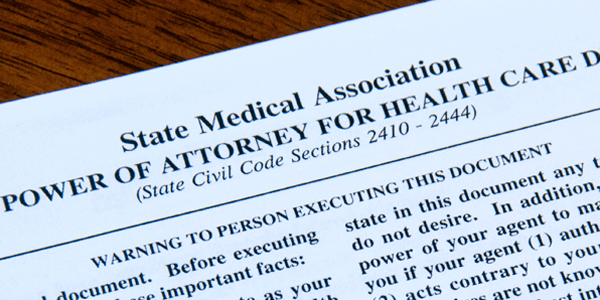Friday April 26, 2024
Personal Planner

Bequests to Your Favorite Charity
Bequests to charity are the most popular type of planned gift. A donor may retain assets during life and then leave a bequest to a charity.
A bequest to a charity should include the full legal name, city and state of the charity—particularly if there are chapters of a national organization or religious organizations with similar names. An attorney who drafts the will should be certain that he or she has correctly identified the intended charity by legal name, city and state. Your attorney may also decide to include the IRS Employer Identification Number (EIN) of the nonprofit with the designated bequest.
Specific Bequests
As a donor, you may choose to leave a specific item or amount to a charity. For example, some friends of charities have left a bequest of land or property adjacent to the campus of the charity. The usual purpose is for the charity to be able to use that property for future additions or expansion.
If you own art or a specific item that may be used by a charity for its exempt purpose, that asset may be a good choice for a specific bequest. Once again, it is important to identify the exact item and the charity by legal name, city and state. Some donors may also choose to list an alternative gift if they leave a specific bequest. If for any reason your estate no longer owns the specific bequest property at your death, you may wish to designate another item or an amount of cash to the charity.
Another option is a specific bequest of an amount of cash. This allows you to know the exact amount that will be transferred from your estate to charity. There is one planning issue to consider with a bequest of a specific amount of cash. If you transfer a specific amount of cash to a charity and your estate is much larger or much smaller than the present value, this bequest to charity may be a larger or smaller part of the estate than you intend. If there is a reasonable prospect for a large increase or decrease in your estate value, you may wish to leave a percentage of the estate to your favorite charity.
Gift of Part of the Residue of the Estate
After all specific bequests have been made and your estate costs and taxes have been paid, the balance of the estate is called the residue. You probably will choose to distribute the residue on a percentage basis. Many donors decide to leave a percentage of the residue to charity.
Some donors give charity a specific percentage, such as 5%, 10% or more. Another option is to give to all of your charities a share that is equal to the share of your children, nephews, nieces or other beneficiaries.
For example, one donor had two children and divided her estate into three shares. Each child received one share and her favorite charities collectively divided the third share. Another parent with three children divided the estate into four shares and did the same. Treating your charities as one child and simply dividing the estate with one share for each child and one share for favorite charities is a very convenient way to benefit your favorite charities.
IRA, 401(k) or 403(b)
If your estate includes an IRA, 401(k) or 403(b) in addition to your home, CDs and other securities, you might consider a beneficiary designation to charity.
From your perspective, your IRA is a very good asset. For traditional IRAs, other than a Roth IRA, the plan is funded with pretax dollars. It also grows tax free. However, you or your beneficiary will pay income tax when you withdraw the funds.
For you, the traditional IRA is an excellent plan. Everyone should have a qualified plan such as an IRA, 401(k), 403(b) or other retirement plan. Your traditional IRA is funded with pre-tax dollars and grows tax free. This is an excellent plan for your future security.
If you pass away with a fairly substantial balance in your traditional IRA or 401(k), that could be an excellent opportunity to make a charitable bequest. For the vast majority of Americans who have an estate that is not subject to estate tax, the only tax paid by the family will be income tax. Your home, CDs, stocks and bonds can be transferred to children without tax.
However, if you give family members your IRA, it comes with a large "you-owe-the-IRS" tax bill attached. When children or other heirs receive your IRA, they pay tax at their highest rate on their IRA distributions. This can be a sum of many tens of thousands of dollars.
Therefore, if you are planning to leave assets to charity, the transfer of an IRA may be a good plan.
Joe is an IRA owner and was speaking with his tax advisor Harry about the options for leaving a bequest to his favorite charity.
Joe: "Harry, I've been thinking about leaving a bequest to charity. You know, I've always thought that I would leave most of my estate to my two nephews and three nieces. But as I've thought about it, I have supported my favorite charity for many years and would like to do something for them."
Harry: "Well, you have a home, some CDs, some stocks and bonds and your IRA. Right now, the other assets are worth about $700,000 in total and your IRA is $300,000. How much were you thinking of leaving to the charity?"
Joe: "I thought I would give charity about one-third of the estate and transfer the rest to my five nieces and nephews."
Harry: "You know, Joe, if you give your five heirs the home, stocks and bonds and CDs they will pay zero estate and income tax. But if you give them the IRA, they would have to pay income tax. A better plan might be to give the IRA to charity. Because a charity is tax exempt, it doesn't pay the income tax. In your case, that's a potential savings of over $90,000."
Joe: "That sounds like a great idea. How do I make that gift?"
Harry: "Your IRA is transferred by a beneficiary designation. We will obtain the form from your IRA custodian and designate your favorite charity. The nice part about a beneficiary designation is that it avoids probate."
Bequest for a Purpose
A bequest of assets through a will, a revocable living trust or a beneficiary designation of a retirement plan also enables you to select a charitable purpose. In most cases, donors simply leave a bequest for the general purposes of the charity. Because your bequest may occur many years after you sign your will, it is good to give the board of directors of the charity opportunity to select the best and most effective use of the bequest.
However, if you wish to benefit a specific area within your favorite charity, that is perfectly fine. You may designate the purpose for the use of your funds. In selecting a purpose, it is still best to give a general category for the use of the funds, so that the organization can continue to make the best possible use of your bequest.
Published December 29, 2023
Previous Articles
Ten Reasons to Update Your Estate Plan










